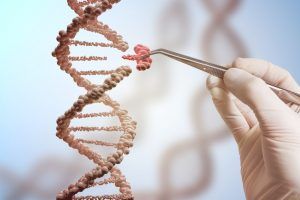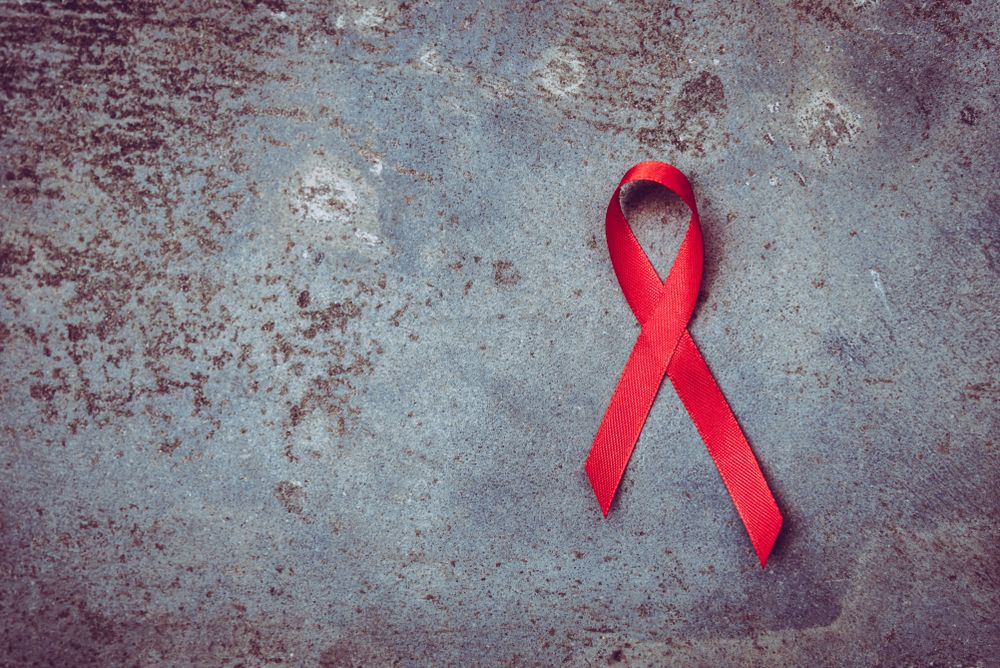An estimated 10% to 15% of couples in the United States are infertile. (Learn More: Fertility Issues in Men and Women)
Sometimes, one person’s known infertility hinders the probability of becoming pregnant, but other times, the cause of infertility is undetermined.
Fortunately, treatments and medications can improve the chances that you and your partner conceive. (Learn More: Fertility Medications)
Some treatments, however, increase the chances of having multiples. (Learn More: Do Fertility Medications or Treatments Increase Your Chances of Conceiving Twins?)
Fertility Issues in Women and Men
If you and your partner have been struggling to conceive, the good news is that most couples will eventually be able to do so even if they do not seek treatment. According to the Centers for Disease Control and Prevention (CDC), infertility is defined as being unable to conceive after having unprotected sex for a year or longer.
Women who are able to get pregnant may also be considered infertile if they are unable to carry the pregnancy to term (impaired fecundity). Cancer treatments, pelvic inflammatory disease (PID), and endometriosis can make it difficult for some women to become pregnant.
Men can also have problems with fertility for a variety of reasons, including:
- Problems with ejaculation or testicular functions, stemming from drug or alcohol misuse, health issues, autoimmune conditions, or past injury to the testes, can get in the way of proper sperm
 production. Cancer and its treatments can also cause infertility in men.
production. Cancer and its treatments can also cause infertility in men.
- Some genetic conditions, such as Y chromosome microdeletion, Klinefelter syndrome, and other genetic predispositions, may make it more difficult for some men to produce sperm in necessary amounts or at all.
- Hormonal conditions, such as excessive exposure to testosterone or estrogen, tumors in the pituitary gland, and regular use of medications in the glucocorticoid family, can negatively affect fertility. The pituitary gland and the hypothalamus do not function correctly in some men, which can also cause infertility.
- Varicocele, a condition that occurs when men have a varicose vein in the testes that makes sperm transportation more difficult, can inhibit fertility.
How to Obtain Fertility Medications
Both women and men will first have to discuss their medical history with their doctor. Patients will be screened for fertility issues by taking a follicle-stimulating hormone (FSH) blood test.
FSH is a hormone released in the pituitary gland that produces sperm in men and stimulates ovulation in women. Low levels of FSH may signify infertility in women and men.
Fertility Medications
People who receive a positive diagnosis for fertility issues may receive a prescription for the following drugs:

- FSH drugs (for women and men): In women, this medication ensures an egg can develop and allows a follicle to grow around it. It works best in women who have healthy ovaries but whose eggs do not develop. In men, this medication promotes sperm production. Two forms are available:
-
- Follitropin alfa lyophilisate: This is given through an injection to the fatty layer beneath the skin (subcutaneous injection). It is sold under the brand names Gonal-F and Follistim AQ.
-
- Urofollitropin lyophilisate: This medication is also administered solely through subcutaneous injection. It is sold as the brand name Bravelle.
- Human chorionic gonadotropin (hCG): This hormone is only naturally produced by women’s bodies, but the drug form can be prescribed to both men and women. Two forms are available:
-
- Human chorionic gonadotropin (hCG) (for women and men): Women are treated with FSH before using this hCG. It is administered through an intramuscular injection, meaning it is injected directly into the muscle. Brand names include Pregnyl and Novarel. Men can also receive hCG injections.
- Recombinant human chorionic gonadotropin (r-hCG) (for women only): This is administered through an injection under the skin. It is only available under the brand name Ovidrel.
-
- Clomid: This is a brand name for clomiphene citrate. Clomid was initially approved for fertility issues in women only. It changes the balance of hormones in women and stimulates ovulation. The drug prevents estrogen from influencing the pituitary gland, increasing the amount of FSH and testosterone in women.
Doctors are known to prescribe Clomid in men, but this is considered off-label use. Men often receive a prescription for Clomid if they have low levels of testosterone, varicoceles, a low sperm count, or low sperm movements due to unknown causes. In addition, men with nonobstructive azoospermia, a condition in which semen does not contain sperm, may get a prescription as well.
Women who take Clomid can expect to use it only on certain days each month. Men may have to take it for a three-month cycle. It is common for men to take Clomid for 25 days and then stop for five days. Men may also take Clomid for 10 days and stop taking it for another 10 days.
Side effects tend to be more serious in women because of the higher levels of estrogen in their bodies. Women can expect vaginal dryness or changes in cervical mucus consistency, mood changes, hot flashes, nausea, and breast tenderness. Men don’t seem to feel adverse effects as much because estrogen levels are naturally lower for them.
- Progesterone: This hormone is important in the second part of a woman’s menstrual cycle. If an egg is fertilized, progesterone is produced during the first 10 weeks of pregnancy to ensure the uterus is hospitable. After this, the placenta does its work.
- Baby aspirin: This is used for women who have blood-clotting issues that make miscarriage more likely.
- Intrauterine insemination: This involves placing sperm into the uterus after it has been washed. This procedure is often used if the male partner is infertile, for procedures involving sperm donors, to address painful intercourse, if the cervical mucus is causing problems that hinder pregnancy, or if the cause of infertility cannot be successfully diagnosed.
- In vitro fertilization (IVF): This is a lab procedure in which a sperm and egg are removed, fertilized in a laboratory, and implanted into the uterus.
Probability of Twins
You may have heard there is an increased likelihood of conceiving twins if you or your partner use fertility  medications and treatments. In fact, several factors could increase the likelihood of conceiving multiples:
medications and treatments. In fact, several factors could increase the likelihood of conceiving multiples:
- Clomid: Women who take Clomid are more likely to have twins than women who do not. Men who take Clomid do not have a higher likelihood of fathering twins.
- IVF: IVF usually increases the likelihood of multiple births because more than one fertilized egg is often implanted in the woman’s uterus to increase the likelihood of pregnancy.
- Family history: People who are related to nonidentical fraternal twins are more likely to conceive twins, especially if both partners come from families with nonidentical fraternal twins. Being related to identical twins does not change the likelihood of multiple gestations.
- Age: Women over age 30 produce higher levels of FSH to continue ovulating, which increases the chances of having twins.
- Weight: Women who are obese have more estrogen in their bodies, which increases the odds of becoming pregnant with twins.
- Folic acid: Data on this is not conclusive, but early research shows that taking folic acid may increase the likelihood of having twins.
Other factors affecting the odds of having twins are race, height, breastfeeding, and already having children.
Frequently Asked Questions
Is infertility a common health issue?
Infertility is defined as failure to conceive after 12 months of unprotected sex. Anywhere from 10% to 15% of American couples deal with fertility issues. Sometimes, fertility issues are exclusive to women or men, but couples can struggle with infertility for unspecified reasons.
What are the most common fertility treatments and medications?
Most couples will be able to conceive even if they do not seek treatment, but medical assistance can increase the odds of becoming pregnant.
Some well-known treatments include intrauterine insemination and in vitro fertilization (IVF). Baby aspirin (for blood clotting), FSH hormone treatments for men and women, Clomid, and human chorionic gonadotropin (hCG) can also improve fertility. Progesterone can improve the odds of becoming pregnant for some women.
Is it true that fertility treatments increase the likelihood of having twins?
Data shows that some fertility treatments, such as IVF and Clomid (when taken by women), can increase the likelihood of having twins. Other factors are a woman’s age, height, race, and whether or not she is breastfeeding or has had children before.
A family history of fraternal (but not identical) twins on one or both sides of the family can also increase the likelihood of having twins. Fertility treatments in men do not change the likelihood of conceiving more than one child.
References
Tips on How to Conceive Twins. (July 2016). Healthline.
What Are My Chances of Having Twins? (May 2016). Verywell Family.
Infertility. (July 2019). Mayo Clinic.
Infertility FAQs. (January 2016). Centers for Disease Control and Prevention.
Female Infertility. (July 2019). Mayo Clinic.
Overview of Fertility Treatments. (July 2019). Verywell Family.
Fertility Drugs: Treatment Options for Women and Men. (June 2016). Healthline.
Clomid for Men: Does It Increase Fertility? (June 2019). Healthline.
Overview of Clomid Infertility Treatment for Men. (July 2019). Verywell Family.
The Facts About Clomid. (July 2019). Verywell Family.
Follicle-Stimulating Hormone (FSH) Blood Test. (July 2017). MedlinePlus.
Overview of the Female Hormone Progesterone. (May 2019). Verywell Health.


 production. Cancer and its treatments can also cause infertility in men.
production. Cancer and its treatments can also cause infertility in men. 




